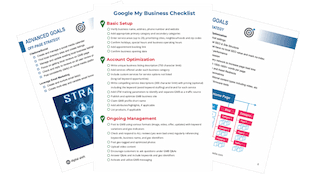Negative Keywords
What are Negative Keywords?
Negative Keywords are keywords that prevent your ads from being displayed when certain words or phrases are searched. It helps you communicate with search engines, telling them to eliminate specific search queries to avoid confusion and misrepresentation. For example, your business provides digital marketing services. You would include negative keywords such as jobs, careers, or training. The important aspect of using negative keywords is to find words associated with your product or service, but do not directly relate. If your business is not offering certain products, services, or opportunities, such as jobs, then including jobs as a normal keyword will waste your money and negative impact your ad campaign.
Adding Negative Keywords
Display Network Campaigns
- Enter into your AdWords
- Select the Display Network in your Campaigns tab
- Select Targeting
- Click on an ad group
- Select Display keywords in the ad campaign exclusions or the add ad group exclusions tabs
- This will allow you to start adding your keywords that are negative at one keyword per line. Make sure you do not have any negative keywords that are also normal keywords, as your ad will not show if this is the case.
Search Network Campaigns
- Log in to your AdWords
- Select the tab with Keywords on it
- Choose the tab with Negative Keywords on it
- You can now add keywords in two tables: Campaign Level and Ad Group Level
- Click the Keywords button and add one keyword per line once you select your desired campaign or ad group for the negative keywords to go into.
- There are three categories to add negative keywords into campaigns: Exact Match, Phrase Match, and Broad Match. Exact match is produced by putting square brackets around the keyword or phrase. Phrase match is done by putting quotations around the keyword or phrase. Finally, Broad match is adding synonyms or variations of the keyword or phrase with nothing around the words.
Importance of Including Negative Keywords
In order to manage the generic results associated with broad match keywords, marketers leverage negative keywords. Marketers will use broad match keywords to evaluate which search queries are good vs bad. Any bad queries that drive up your campaign cost and cost per click should be immediately added to a negative keyword list. Without using negative keywords your campaign can spiral out of control in several ways:
- match too many queries, customers don’t click on your ad, and the quality score of your product decreases
- match too many queries, driving up unqualified clicks that never convert, and your total campaign cost and CPA inflates
- can’t increase bids to grow your campaign due to too many unqualified clicks
- Google starts displaying other products with better click through rates or comparable products with a worse conversion. The more Google shows the product the higher the quality score. This also leads to a higher CPA
Where to Find Negative Keyword Options

As you can see using negative keywords will significantly reduce irrelevant advertisement impressions so you can improve your quality score and lower your cost per click. Additionally, your cost per acquisition and ad spend will significantly decrease while your conversion rates will increase. It will also enhance user experience because they find relevant information they are searching for easier. Lastly, negative keywords also help decrease your website’s bounce rates because customers aren’t being misled. Instead of customers visiting your page and abandoning because your search results were misleading, you only receive interested a high-quality users visiting your web page.

